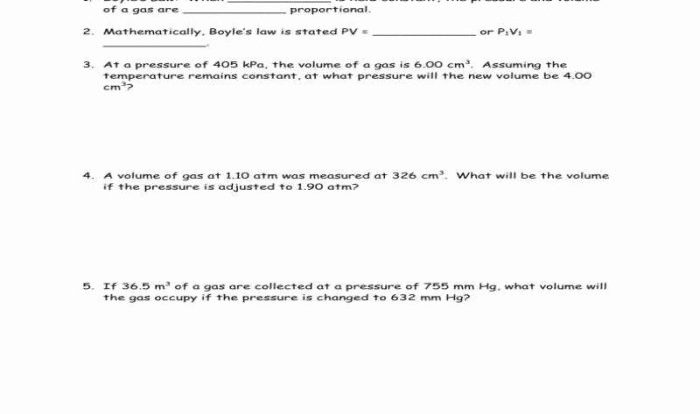Embark on an electrifying journey with the Forms of Energy Crossword Puzzle! Dive into the depths of energy, uncovering its diverse forms and their fascinating interconversions. Prepare to be captivated as we explore the enigmatic world of energy, where potential transforms into kinetic and chemical fuels ignite the spark of life.
From the gentle whisper of wind to the raging inferno of fire, energy manifests in myriad ways. This crossword puzzle invites you to unravel the secrets of energy, testing your knowledge and expanding your understanding of this fundamental aspect of our universe.
Forms of Energy: Forms Of Energy Crossword Puzzle
Energy is a fundamental concept in science that refers to the ability to do work. It exists in various forms, each with its unique characteristics and properties.
Forms of energy can be classified into two main categories: potential energy and kinetic energy. Potential energy is the energy stored within an object or system due to its position or state. Kinetic energy, on the other hand, is the energy possessed by an object due to its motion.
Potential Energy
- Gravitational potential energy:Stored due to an object’s position in a gravitational field, such as an apple hanging from a tree branch.
- Elastic potential energy:Stored in an elastic material when it is stretched or compressed, such as a rubber band.
- Chemical potential energy:Stored in chemical bonds, such as in food or batteries.
Kinetic Energy
- Translational kinetic energy:Energy due to the linear motion of an object, such as a car moving on a road.
- Rotational kinetic energy:Energy due to the rotational motion of an object, such as a spinning top.
Energy Transformation
Energy can be transformed from one form to another through various processes. For example, gravitational potential energy can be converted into kinetic energy when an object falls. Chemical potential energy can be converted into electrical energy in a battery. Energy transformation is crucial in many technological applications, such as power generation and energy storage.
Crossword Puzzle
Crosswords are a fun and challenging way to test your knowledge. This crossword puzzle is all about different forms of energy. Can you solve it?
Across
- A form of energy that is stored in the nucleus of an atom (5 letters)
- A form of energy that is created by the movement of electrons (7 letters)
- A form of energy that is stored in the bonds between atoms (6 letters)
- A form of energy that is created by the movement of heat (4 letters)
- A form of energy that is created by the movement of light (4 letters)
Down
- A form of energy that is stored in the motion of an object (6 letters)
- A form of energy that is created by the movement of water (5 letters)
- A form of energy that is created by the movement of wind (4 letters)
- A form of energy that is created by the movement of plants (5 letters)
- A form of energy that is created by the movement of animals (5 letters)
Answers
- Nuclear
- Electrical
- Chemical
- Thermal
- Light
- Kinetic
- Hydro
- Wind
- Biomass
- Animal
Energy Sources
Energy sources are the resources from which energy is extracted to generate electricity, power machinery, and perform various tasks. They play a crucial role in meeting the world’s energy demands and shaping global energy systems.
There are various types of energy sources, each with unique characteristics, advantages, and disadvantages. Understanding these sources is essential for informed decision-making and sustainable energy planning.
Fossil Fuels, Forms of energy crossword puzzle
Fossil fuels, including coal, natural gas, and oil, are non-renewable energy sources formed from the remains of ancient plants and animals. They are the most widely used energy sources globally, accounting for a significant portion of electricity generation and transportation fuels.
Advantages:
- Abundant and widely available
- Well-established extraction and production technologies
- High energy density, providing significant energy output per unit
Disadvantages:
- Non-renewable, meaning they will eventually be depleted
- Significant greenhouse gas emissions, contributing to climate change
- Air pollution and environmental damage associated with extraction and combustion
Nuclear Energy
Nuclear energy is generated through nuclear reactions, specifically the fission of uranium or plutonium atoms. Nuclear power plants use this process to produce heat, which is then converted into electricity.
Advantages:
- High energy density, resulting in efficient electricity generation
- Low greenhouse gas emissions during operation
- Relatively stable and reliable energy source
Disadvantages:
- Requires specialized infrastructure and highly trained personnel
- Produces radioactive waste that requires careful management and disposal
- Potential for accidents and safety concerns
Renewable Energy
Renewable energy sources are naturally replenished over short periods and include solar, wind, hydro, geothermal, and biomass. These sources do not deplete and have minimal environmental impact.
Advantages:
- Sustainable and environmentally friendly
- Abundant and widely distributed
- No greenhouse gas emissions during operation
Disadvantages:
- Intermittent or variable in nature, requiring backup systems
- Lower energy density compared to fossil fuels
- Higher infrastructure and maintenance costs in some cases
Energy Conservation
Energy conservation is crucial for ensuring a sustainable future. It involves using energy efficiently and reducing waste to meet our energy needs without compromising economic growth or environmental quality.Energy conservation has numerous benefits, including reducing greenhouse gas emissions, minimizing environmental pollution, and ensuring energy security.
It also helps save money on energy bills and promotes economic growth by creating new jobs and industries.
Tips for Conserving Energy
- Use energy-efficient appliances and light bulbs.
- Turn off lights and unplug devices when not in use.
- Insulate your home to reduce heat loss.
- Use public transportation, carpool, or walk instead of driving alone.
- Adjust your thermostat to save energy on heating and cooling.
Essential FAQs
What is energy?
Energy is the ability to do work or cause change.
What are the different forms of energy?
Some common forms of energy include kinetic energy, potential energy, chemical energy, thermal energy, and electrical energy.
How can energy be transformed from one form to another?
Energy can be transformed from one form to another through various processes, such as combustion, photosynthesis, and electrical generation.


